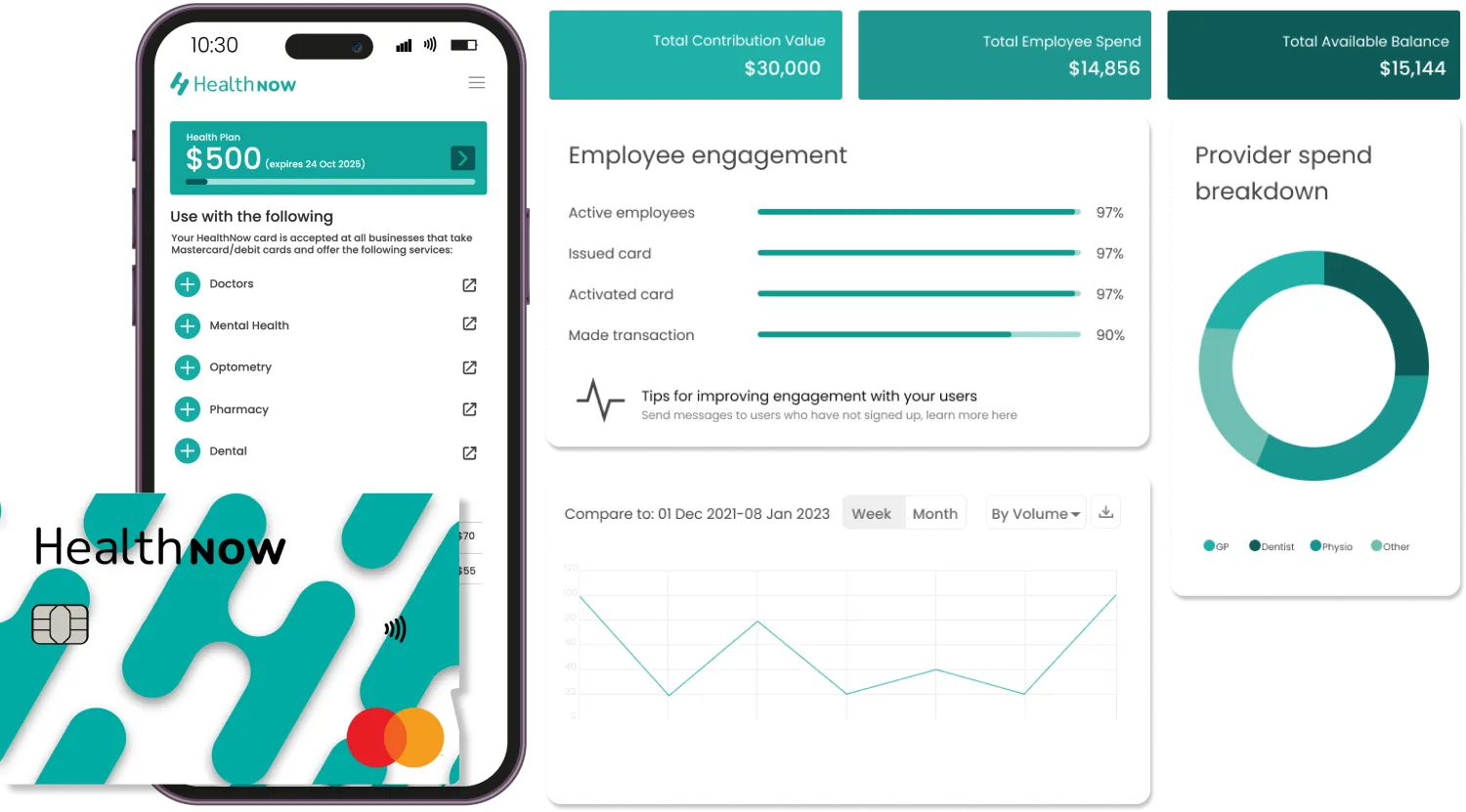New Zealand statistics from 2022 found that the number of employed Kiwis who were absent from work due to sickness, illness or injury was up a staggering 67% compared with the same quarter the previous year. Paired with the various other causes of absenteeism that will have seen even more people unable to attend work, including mental health reasons, personal family concerns, burnout, stress, low morale, disagreement with management choices and even accounting for those who have had their annual leave refused, and the effects on a business can be profound.
Alongside being estimated to cost New Zealand over $1 billion dollars every year, prolonged absenteeism is strongly linked with lost productivity, greater costs incurred, workflow disruptions, added time spent on HR administration, potential business loss if supply cannot meet demand within a business, safety or quality risks – even reduced customer service or employee morale in some cases. While larger companies may have contingency plans in place to absorb these temporary periods of staff absence without taking a significant hit, the strain is felt much more for small business owners, who may have no choice but to work extended hours under greater stress to help keep their business afloat and operational. So what can be done to help reduce absenteeism? Here are seven ideas to help.
Clear Attendance Policies
It’s much easier to see a friend from another organisation “pulling a sickie” and thinking to do the same yourself if your company hasn’t clearly outlined, and emphasised the importance of, their attendance policies. Clear attendance policies help to establish expectations around their attendance and punctuality, conveying the importance of not only showing up but also being accountable for their work. This clarity leaves no room for ambiguity and helps establish a culture of responsibility and commitment.
Transparent attendance policies also promote fairness and consistency within the organisation where all employees know that they are held to the same standards. This can help prevent the perceptions of favouritism or unfair treatment, contributing to a positive work environment and reducing potential morale issues.
Addressing Absenteeism Proactively
Whenever a new team member joins a business, it’s important for them to understand how the company’s processes work and the boundaries that are set. Therefore, being proactive in addressing unsanctioned absences immediately allows your new (and existing) employees to better understand these boundaries, and know that they will be held accountable if the behaviour is to repeat. While it may seem ‘nice’ or ‘flexible’ to give employees the benefit of the doubt on the first few cases of unexplained absences, this may instead set up an unhealthy habit or relationship where they may believe that it’s not a big deal, as it hasn’t been addressed. Being proactive also allows you to understand the reason behind their absence, so you can see if there is something the business can do to help support them – making them feel looked after, as opposed to being sanctioned for their actions.
Add Attendance As A Performance Metric
Everyone wants to do well and meet their goals and targets – so you may consider whether it’s appropriate for your business to add attendance as a visible performance metric for your team. This can look like the number of days an employee has been absent within a set time frame (like a quarter). This may foster more motivation for attendance as well as punctuality, especially when generalised metric reviews are part of the considerations for raises or promotions.
While some organisations may suggest adding lateness as a performance metric too, you may want to be careful about this as there can be a fine line between effective strategies for motivation and going overboard leading to employees feeling that they’re being too closely monitored and having a negative effect.
Improve Employee Engagement
Having good relationships at work, and genuinely feeling like a part of the team, is another way to increase accountability and engagement, which can discourage prolonged absenteeism. This can be worked on by creating a positive work culture that fosters a sense of belonging and purpose through promoting open communication, collaboration, and recognition of employees’ contributions. Additionally, providing growth and development opportunities, such as training programs and career development plans, demonstrates a commitment to employees’ long-term success and keeps them engaged.
Supporting a good level of autonomy and decision-making power also helps cultivate a sense of responsibility and pride, showing employees that their contributions are valued and encouraging them to take ownership of their projects.
Prioritise Recognition
It’s much easier to take an unaccounted sick day when you feel like your efforts at work aren’t appreciated or recognised. There may often be times that employees work late to meet a deadline – so provide regular feedback sessions where you communicate that their hard work is being seen and valued. This includes recognising their attendance, and considering bonuses like letting them have the afternoon off following a late night on a deliverable, especially given they’ll be more tired and not functioning at full capacity anyway.
Encourage Work-Life Balance
If you don’t take care of your body, your body will inevitably get into a state where you’re forced to have rest and downtime to take care of it. Pairing this with the knowledge that employees only have so many productive hours in a day, makes it even more important to encourage work-life balance. This can look like letting your employees know that they’re not expected to work beyond their designated hours, or through their lunchtimes and breaks, and that you want them to go home or rest or get fresh air and prioritise their well-being. By having your employees have more rest and downtime on a day-to-day basis, this can leave them with more energy and motivation throughout the week, without the burnout or stress that leads to prolonged absences.
Promoting Employee Health With Employer Aid
When the cost of living is at an all-time high, it can be hard to factor in proactive healthcare costs to help people support their own health and well-being in the best way possible. And when health is left on the back burner, it’s only a matter of time until something goes wrong and more urgent care is needed, whether that’s a sick day at home or needing to see a specialist. This is where offering employer aid payments to employees can help greatly.
Employer aid is delivered as a payment to an employee’s dedicated health account via the HealthNow app, which can only be used on health and medical-related services and products, including proactive health care such as seeing a nutritionist to get on top of nutrition, or seeing a physiotherapist at the first sign of musculoskeletal pain, as opposed to when it has worsened to the extent that a person physically cannot come into work or perform their work duties.
The funds, the quantity of which are chosen by the employer, are available for employees to use throughout the year in much the same way they use a digital card on their phone, working at any eftpos terminal where Mastercard is accepted. Employees have control over which health services to spend their funds on within the health service categories approved by the employer, and available within HealthNow’s service suite. Businesses are not charged for any funds that are unused by their employees at the end of their annual period.
Operating across New Zealand and the US, HealthNow makes offering employer aid easy and simple by welcoming you into their AI-driven platform and international technology that delivers a custom solution to your business – HealthNow designs your employer aid based on your needs and requirements. The onboarding process for employer aid is free and easy, and you receive impact statements that give you a breakdown of how the funds are being spent, to best help you direct health initiatives in the future.
Ready to take the next step to effectively supporting your employees to look after their health? Get started with HealthNow today.








